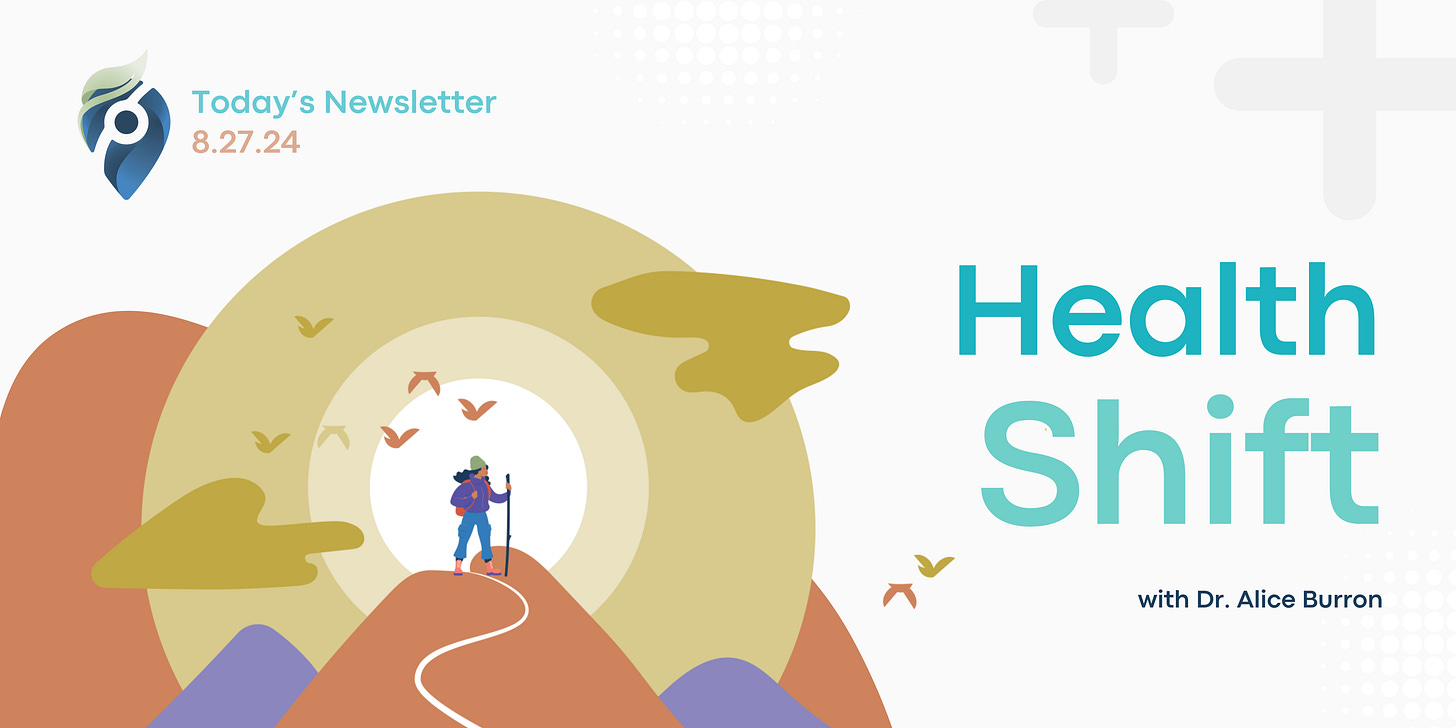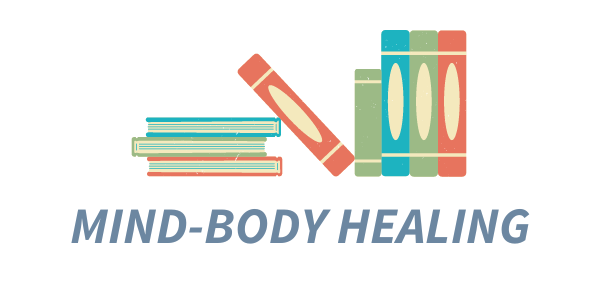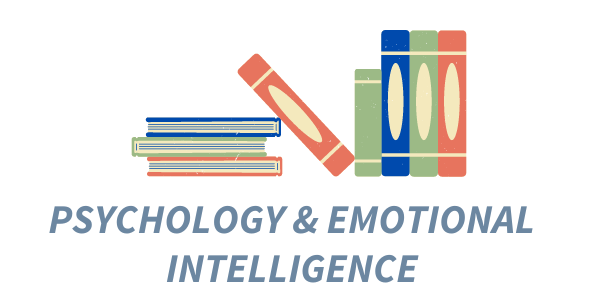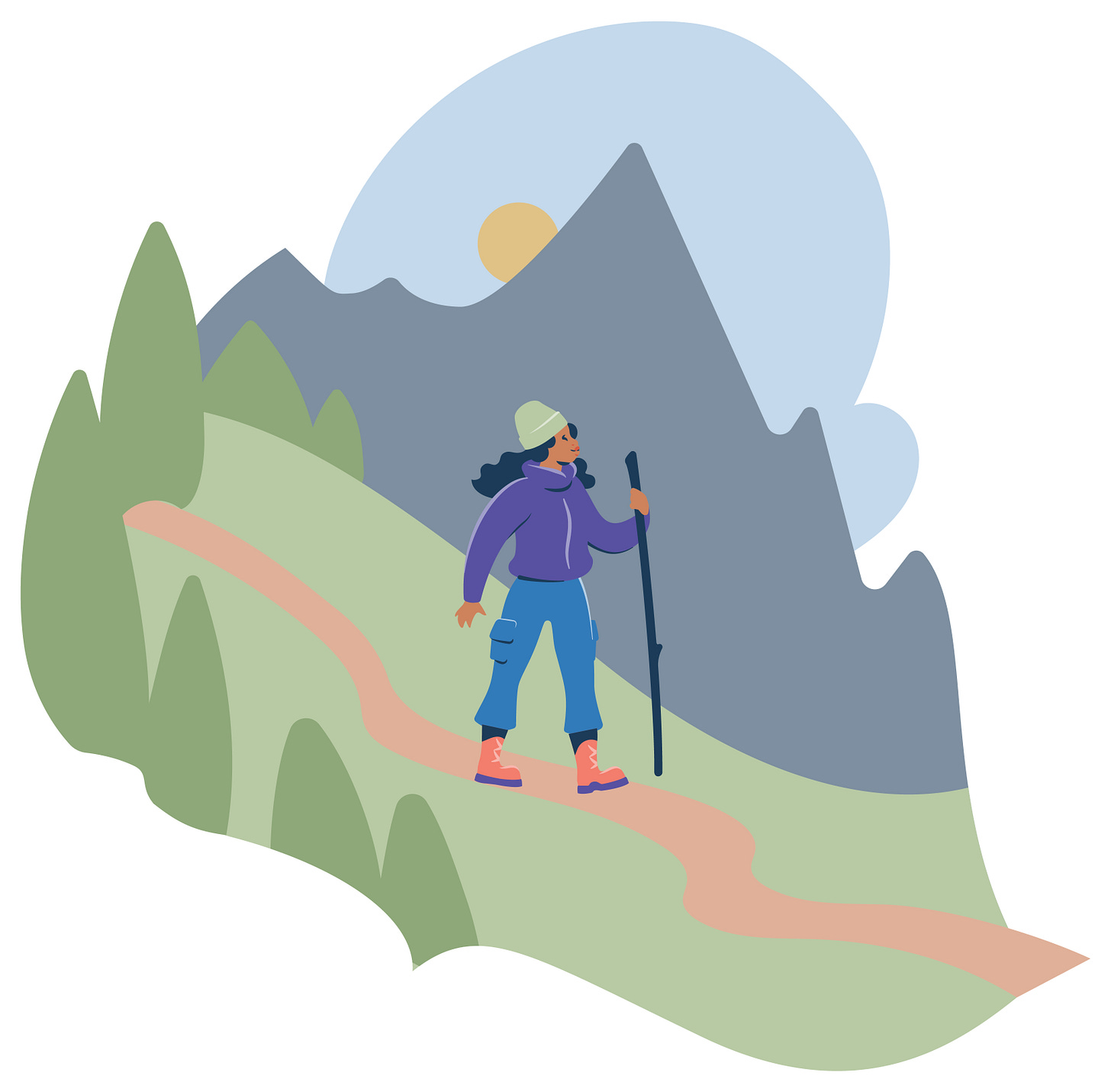Good morning and happy Tuesday, health heroes.
The lightest whisper of fall is in the air, and it already has me itching to go to the bookstore or sit down with an interesting read. I’m spending a lot of time thinking about books lately because my own book will be available soon, and I’m up to my neck in edits, changes, words, and phrases.
I’m in the business of helping people make better health decisions. A large part of my job involves sorting through existing information and studying ways to make good, quality information accessible, especially on topics that are difficult to understand.
We’ve all been there: staring at the self-help section of a book store, or skimming titles online with a mixture of hope and skepticism. Some books seem useful and applicable, others utterly useless, and a few internet-famous. Atomic Habits, anyone?
Not all available health information is good information, but books offer solid foundations for those of you curious about exploring the avenues of your own health.
This week’s newsletter is a library. Bookmark it for the future, in case it may come in handy!
📖 Reading real books is one of the best ways to clarify the path on your health journey.
Although the internet can be a great place to find information, books are my favorite go-to sources when seeking knowledge or understanding on a health topic.
Books offer thoroughly vetted, well-researched information written by genuine field experts who are putting their credibility on display and opening themselves up to criticism. Rather than being produced quickly, like a Substack article, books are rigorously edited for accuracy and depth and are curated by authors who can take years of experience and distill them into a clear narrative or structured argument.
Personally, I also find that the internet can be… overwhelming. There is a lot of content out there, but not all of it is useful, and it can be tempting to follow clickbait headlines that echo or inflame our biases. Books are a quieter, more focused experience designed to guide their readers through a topic in a useful, distraction-free manner. They also force us to think more critically and deeply since we’re engaging with something in a more intentional way rather than a quick scroll.
Distraction-free intellectual engagement is crucial for developing our personal health journey, free from biases and easy sway of the internet’s emotions. It’s an algorithm-free way to explore your topics and interests at your own pace, without hearing an influencer's opinion or their comment section… and best of all, there are no ads!
Dr. Alice Burron’s Library
Here are the books at the top of my reading list, the ones I reach for most often and whose advice has proved invaluable in the health journeys of my clients, family, and myself. I honestly feel like I’m introducing you to my closest colleagues and best friends. These books are foundational for all I offer. They have built my health navigator approach over the years. And yes, I’ve read every one—many, many times! I owe all of these authors much thanks for their wisdom and perspective. I can only hope that my book (which will be released in early 2025) will rank among them, as it will contain some DNA from them all.
I get no kickbacks from any of these; this is my opinion alone. As a bonus, anyone labeled with a 💫 has a Substack - click on their name for the link!
The Healing Self by Deepak Chopra explores how integrating mind-body practices, personal empowerment, and holistic approaches can enhance well-being and genuinely promote self-healing.
💫 Mind Over Medicine by Lissa Rankin examines how the power of the mind and belief can influence physical health and healing, emphasizing the role of mental and emotional states in medical outcomes. I want to meet Lissa someday - we parallel. You can also find her Substack, The Body is a Trailhead, here!
Healing Mindset by Eileen Laird offers insights into how adopting a positive, proactive mental attitude can significantly impact our body’s healing process. Great research is out there on how if we think we can heal, we can.
The Biology of Belief by Bruce Lipton explores how belief systems and perceptions can influence genetic expression and cellular biology. I can’t say enough about how this book offers a new perspective. You have to read it.
Heal Your Nervous System by Dr. Linnea Passaler provides practical insights for restoring and maintaining a healthy nervous system through lifestyle changes, mindfulness, and self-care. Who knew a nervous system could be healed? Now you know!
The Mindful Body by Ellen Langer delves into how mindfulness and awareness of the body's signals can enhance health and longevity by altering perceptions and behaviors related to physical well-being. Written by the first female tenured professor of psychology at Harvard, the premise of The Mindful Body is that the ‘true understanding of health begins with our minds.’
Psychology and Emotional Intelligence
Permission to Feel by Marc Brackett explores how recognizing, understanding, and managing emotions can improve our personal and social well-being. I use this concept in my interactions with people who are on a healing journey. Feelings matter—this book proves it.
Emotional Intelligence 2.0 by Travis Bradberry offers practical strategies and tools for developing emotional intelligence. We all need this - if you haven’t been trained on emotional intelligence, this book will do you right.
Mindset by Carol Dweck presents the concept of "fixed" versus "growth" mindsets and how adopting a growth mindset can lead to greater achievement and resilience in daily life. I use this concept daily. It will change the way you help people, too.
The Body Keeps the Score by Bessel Van Der Kolk examines how trauma impacts the body and mind and offers insights into therapeutic approaches for healing and recovery. You’d have to be living under a rock to have not heard of this book — but it really is that useful. And it rings true through and though.
Positive Psychology by Bridget Grenville-Cleave introduces the principles of positive psychology, focusing on how fostering positive emotions and strengths can lead to a more fulfilling life. Once you read this book, you won’t ever think the same negative way again. :)
Mindfulness by Marc Williams and Danny Penman provides practical guidance on incorporating mindfulness practices into daily life to reduce stress and live better, healthier lives. We all need this practice in our lives.
Medical Perspectives and Health Systems
Overdiagnosed by Dr. H Gilbert Welch critiques the increasing prevalence of overdiagnosis in modern medicine, highlighting its potential harms and suggesting a more cautious approach to diagnosis in today’s culture. Do you want to change your perspective on our healthcare screening guidelines? This will do it!
The American Healthcare Paradox by Elizabeth Bradley explores how the U.S. healthcare system’s focus on medical treatment over prevention contributes to poorer health outcomes at higher costs. I read this in my doctorate program, changing my view of the American healthcare system forever. This is a classic.
Where Does It Hurt? by Jonathan Bush offers a critical look at the inefficiencies and challenges in the American healthcare system, advocating for innovative solutions to improve care and reduce costs. This book was hard for me to find—I had to hunt it down! I finally found a used library version, but it was worth it.
The Disease Delusion by Dr. Jeffery S. Bland challenges conventional medical thinking by arguing that many chronic diseases are preventable and manageable through lifestyle changes and a functional medicine approach. I refer to this book all the time.
Natural Health, Natural Medicine by Andrew Weil provides a comprehensive guide to integrating natural therapies and practices with conventional medicine to promote overall health and well-being. Dr. Weil has so many great books, and Dr. Weil is solid. I admire and respect his work so much.
The Human Super-Organism by Rodney Dietert examines the complex interactions between humans and their microbiomes, emphasizing how these relationships impact health and disease. This book might creep out the squeamish, but we all should be aware of this content.
Decision-Making and Behavioral Economics
The Art of Decision Making by Joseph Bikart explores the psychological and emotional factors influencing decision-making and offers strategies for making more effective choices. I use this as a go-to to understand why we make crazy decisions.
Nudge by Richard Thaler and Cass Sunstein examines how subtle changes in the way choices are presented can significantly influence people's decisions and improve outcomes in various aspects of life. Amazing, amazing book. I can’t say enough about it.
Thinking, Fast and Slow by Daniel Kahneman presents insights into the dual systems of thought—fast, intuitive thinking and slow, deliberate reasoning—and their impact on decision-making and judgment. Our brains default to ways of processing information. The more we know, the more we can manage how we think. Dive into the research with Dr. Kahneman.
Noise by Daniel Kahneman, Olivier Sibony, and Cass Sunstein investigates the variability in judgments and decisions caused by "noise" or random errors, and suggests ways to reduce it for more consistent outcomes. I love this book because it simplifies, not complicates, our decisions. I’m all about thinking efficiently.
The Power of Agency by Paul Napper and Anthony Rao explores how taking control of one’s decisions and actions can enhance personal success and resilience in facing life's challenges. This book will give you a feeling that you can do anything — who doesn’t need that?!
Switch by Chip Heath and Dan Heath explores the principles of change management, offering strategies for individuals and organizations to successfully implement and sustain positive transformations. A timeless classic full of wisdom that applies to everything - even health.
Health Communication and Medical Relationships
What Patients Say, What Doctors Hear by Danielle Ofri examines the communication gap between patients and doctors. She highlights the way misunderstandings and biases can affect medical outcomes — and proposes ways to improve doctor-patient interactions. Perspective matters, so read this book.
Your Life Depends On It by Talya Miron-Shatz explores the impact of medical decision-making on patients' lives and provides insights on how to make more informed and effective health choices. Another interesting take on healthcare.
The Medical Mind by Jerome Groopman investigates the cognitive processes behind medical decision-making and the challenges doctors face in diagnosing and treating patients. Again, another interesting take on healthcare.
Cure by Jo Marchant delves into the science of mind-body medicine, exploring how psychological factors and beliefs can influence physical health and recovery. We are not just bodies - we are minds AND bodies with spirits. Why can’t we approach our health this way? Well, we can. Read this book.
Self-Mastery and Behavioral Change
The Willpower Instinct by Kelly McGonigal explores the science behind willpower, offering practical strategies for strengthening self-control and overcoming challenges in achieving personal goals. You can overcome addiction and bad habits.
Mastery of Self by Don Miguel Ruiz Jr. focuses on understanding and transforming personal beliefs and behaviors to achieve self-mastery and live a more fulfilling life. If you’re willing to take a completely different look at being human, read this - there are more, too - so much innate wisdom in such little books.
Changing to Thrive by James Prochaska, Carlo DiClemente, and John Norcross presents strategies for making and maintaining successful behavior changes based on the Transtheoretical Model of behavior change. I base my approaches on how to coach and educate based on Dr. Prochaska’s Transtheoritcal Model of Behavior Change.
💫 Think Again by Adam Grant examines the psychological and behavioral factors that contribute to weight loss and sustainable health changes, challenging conventional wisdom on dieting and body image. Adam Grant is gold, and you can find him on Substack, too.
What books have you found useful in your health journey? Has anything radically changed your mind about something, or the opposite?
See you Thursday!
— Dr. Alice
A little more about Dr. Alice Burron and The Health Navigator Group:
You can find more about The Health Navigator Group at our website: www.thehealthnavigator.org
On Instagram: @the.health.navigator
And learn more about Dr. Alice Burron at her website: draliceburron.com
Or via her personal Instagram: @dr_burron
You can even connect with her on LinkedIn, if you want to be professional about it. 👓
And if you’re not subscribed to our Substack, what are ya doing? It’s free, and packed full of useful tools to help you on your journey to better, faster healing.











